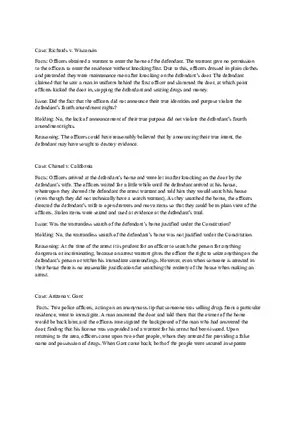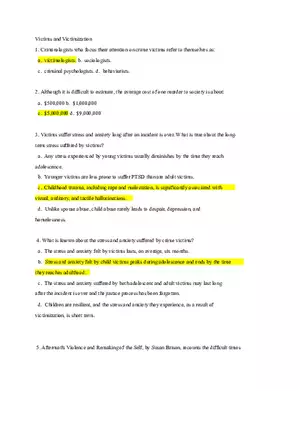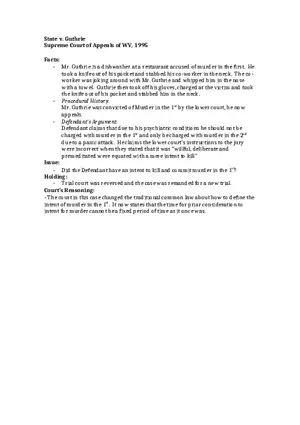Lecture Note
Criminal Law: Offenses, Intent, and Justice
-
University:
California State University, Northridge -
Course:
CJS 320 | Introduction to Criminal Law and Legal Analysis Academic year:
2020
-
Views:
138
Pages:
1
Author:
D. Harianto
Related Documents
- Criminal Law Outline Chapter 3
- Criminal Law Outline Chapter 1
- Property Attack Sheet Outline Ch 2
- Criminal Law Outline Chapter 2
- Property Attack Sheet Outline Ch 1
- Criminal Law Outline Chapter 4
- Contract Formation
- Keeler v. Keeler Criminal Law
- What is a Tort (Lecture) Part 3
- What is a Tort (Lecture) Part 8
- Criminalistics - An Introduction to Forensic Science Part 1
Report
Tell us what’s wrong with it:
Thanks, got it!
We will moderate it soon!
Report
Tell us what’s wrong with it:
Free up your schedule!
Our EduBirdie Experts Are Here for You 24/7! Just fill out a form and let us know how we can assist you.
Take 5 seconds to unlock
Enter your email below and get instant access to your document










